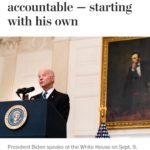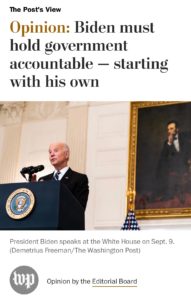Citizens should be empowered to participate to make regulations work, and undue influence of regulated entities in rulemakings should be ended.
Recommendations for Short-term Action (First 100 Days)
- Create the Office of the Public Ombudsman.
The Public Ombudsman would be charged with advancing the public interest in the rulemaking process. The Public Ombudsman would monitor rulemakings across the government to make sure that the public and public interest organizations were as involved in rulemakings as affected industries. The Public Ombudsman would be empowered to file their own comments, particularly on procedural matters and the failure to tailor rulemakings to promote public engagement or reflect the interests of those who are traditionally underrepresented. The Public Ombudsman would be charged with paying particular attention to the interests of communities of color and other traditionally under-represented communities, in order to ensure their active involvement in rulemakings as well as represent their interests in rulemaking proceedings.
- End negotiated rulemaking.
Except as required by statute, adopt a policy to end negotiated rulemaking, which invites industry to negotiate the rules they must follow, empowers corporations to delay the rulemaking process and excludes the general public.
Recommendations for Legislative Action
- Authorize deadline lawsuits.
Environmental statutes such as the Clean Air Act authorize citizen suits for agency violations of the underlying statute. Congress should enact a general statutory provision that establishes a prospective legal claim, in the name of the government, for public interest organizations to sue agencies for failure to issue prescribed rules within one year or the statutory specified period.
- End the Small Business Regulatory Enforcement Fairness Act (SBREFA) review process.
Practical experience shows that this process does not aid small business, but in fact allows powerful trade groups to get a sneak peek at certain regulations and weaken or delay them before they are ever made public.

